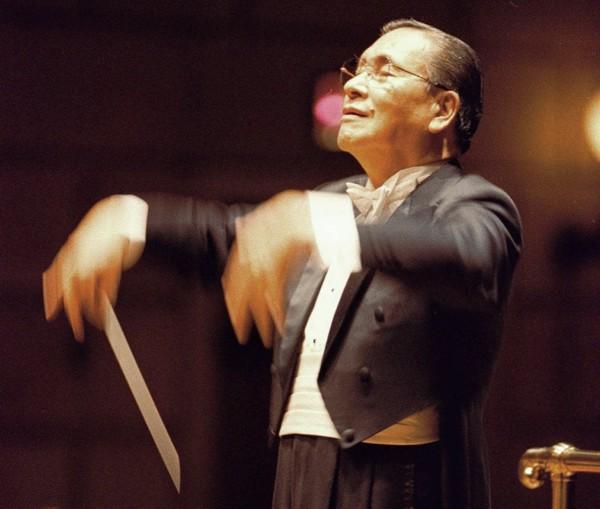Sony's Akio Morita on Norio Ohga

Perhaps the person best suited to reminiscing about Ohga would be the one who wooed him away from his career as a performing musician, Sony's legendary founder Akio Morita, who died in 1999. Following are some passages from his 1986 book Made in Japan. He starts by describing Ohga as "the young music student who asked so many audacious questions of our salesmen in 1947 that they finally brought him around to the company to talk to the engineers."
Ohga advised us on the musical side of things for many years before he joined Sony. He made one of our first tape recordings of the full orchestra of the Tokyo University of Arts, with himself as baritone soloist in Brahms' German Requiem. I tried very hard to get him onto the Sony staff, but he was extremely reluctant. When he first came to visit Sony, while he was still a student, he started arguing with me, not knowing exactly who I was or what my position was. The staff was amused by his brashness, and when I left the room he asked them about me. They said, "That's Morita, Mr. Tokyo Tsushin Kogyo" [Sony's original name]. He says he was embarrassed, but I doubt it. It certainly didn't change his style. He went off to Germany to study, and we asked him to write us about developments in electronics there. I sent him one of our first transistor radios to show off, and we kept in touch while he studied and sang his favorite roles, Wolfram in Tännhauser, the title role in Don Giovanni, and Count Almaviva in The Marriage of Figaro. He finally returned to Japan, got married, and gave concerts with his wife, the pianist Midori Matsubara. In 1959 I asked him to come with me to Europe on a trip to find new agents for transistor radios. We had a fine trip and I didn't broach the main subject I had in mind until we were aboard the SS United States, where I had him trapped for the four days and ten hours of the Southampton-to-New York crossing.On that trip, we walked a lot, ate a lot, exercised a lot, and talked a lot, of course. Ohga, a strapping, barrel-chested fellow, with a resonant voice, criticized Sony in beautiful tones, and I was most interested in what he had to say. He didn't pull any punches. "Your company is full of engineers," he said, and from his tone of voice I could tell he didn't mean it as a compliment. "Since these engineers started the company," he continued, "from their point of view they think it is right that they should continue to run it. But from an outsider's point of view, the company is old-fashioned and poorly run." It was a fresh point of view, and startling, because we still thought of ourselves as quite daring and original managers. We couldn't see what he saw from outside, that perhaps we had been resting on our oars, that we were getting out of date after over a decade in control. He elaborated at some length, and finally I said, "All right, you join us and you will be one of the management team." He had fallen into my trap, I thought. But he still held out, saying he wanted the freedom to be an artist, not a salaryman tied to a desk. I said he could still give concerts and also work for us full-time, that we would work it out between us.
When we got back to Japan, my wife and I went to his wife, Midori, and appealed to her to help us get him on board. Midori was a high school classmate of [Morita's wife] Yoshiko. I do not know who was eventually most persuasive, but Ohga finally joined the company as general manager of professional products and in a year and a half was in charge of all consumer tape recording operations. In 1964, after only five years in the company, and when he was only thirty-four, he became a member of the board, something unheard of in traditional Japanese companies, but Sony still thought it was anything but traditional, despite Ohga's criticism. In his first year he did many nontraditional things, including hiring almost forty people away from other companies.
- Log in or register to post comments





























































